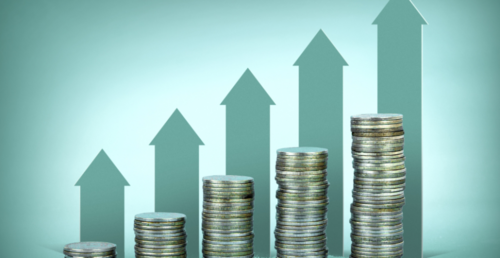
Why are Some Investments Considered Riskier than Others?
.png)
The golden thread in investing is to maximise returns and minimise risk. To generate wealth while preserving wealth, in other words, and it’s a constant push and pull between these two forces.
If things are looking up in the economy, investors aim to maximise returns by putting their faith in riskier investments that generally deliver higher returns. When things aren’t looking too bright, these investors may decide to move their capital to investments that are less susceptible to these ups and downs, with the aim of preserving wealth, and this period is called a risk-off environment.
Investments, or assets, preferred by investors in times of economic prosperity are called risk-on investments, and investments preferred in times of volatility are known as risk-off investments. There’s no clear line in the sand that separates the two, and there may be some overlap depending on market conditions, but in the end it comes down to investor risk appetite in the different stages of a market cycle.


An investment’s susceptibility to market forces can come down to inherent characteristics of the investment. An investment in bonds, for example, pays a set amount to the investor as agreed in a contract, whereas stocks or cryptocurrencies are dependent on the free forces of the market – how many investors are buying versus how many are selling.
Investments driven by speculation, hype, or market trends are more likely to experience higher volatility as sentiment changes. On the other hand, investments based on fundamentals and long-term value tend to have smoother price movements.
Market liquidity is another factor. When there is a large number of buyers and sellers in the market, it creates a more balanced supply and demand dynamic, reducing the potential for extreme price swings.
So too market size. Investments that operate in larger markets with a greater number of participants tend to be less volatile.

Many factors, such as global and local economic events, are interconnected and often a direct result of the other. The pandemic and the government response, for example, is often cited by economists as one of the main causes of inflation we’re seeing today. And high interest rates in the US and around the world at the moment is a direct consequence of high inflation.
Most analysts believe we are currently in a risk-off environment given the current signals from central banks around the world, high interest rates, political uncertainty, and the impact of all of these factors on the global economy.
JP Morgan explains, “It probably isn’t a bull market yet, and we expect volatility through the second half of the year,” and adds that most investors are currently leaning towards safer investments, anticipating stock prices to “move lower”. A risk-off environment, in other words.
*This information should not be construed as a solicitation to trade. All opinions, news, research, analysis, prices or other information is provided as general market commentary for information purposes only and is not investment advice or recommendation. We always advises you to obtain your own independent financial advice before investing or trading in cryptocurrency.
To Invest in Crypto, click HERE
Join Markethive - the only Market Network on Blockchain, click HERE
A Social Market Network Built for Entrepreneurs by Entrepreneurs
*This information should not be construed as a solicitation to trade. All opinions, news, research, analysis, prices or other information is provided as general market commentary for information purposes only and is not investment advice or recommendation. We always advises you to obtain your own independent financial advice before investing or trading in cryptocurrency.
.png)
About: Andries vanTonder
Over 40 years selfemployed
He is a Serial Entrepreneur, an Enthusiastic supporter of Blockchain Technology and a Cryptocurrency Investor
Find me at my Markethive Account | My Twitter Account | My Instagram Account | My Facebook Account
